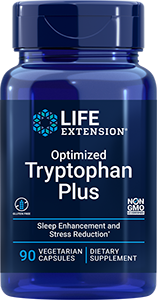Meta-analysis finds reduced mortality among breast cancer patients with sufficient vitamin D levels
Tuesday, March 11, 2014. The results of a meta-analysis conducted by a team from the Naval Health Research Center and the University of California, San Diego reveal a protective effect for higher levels of vitamin D against the risk of dying from breast cancer. The findings were reported in the March 2014 issue of the journal Anticancer Research.
For their analysis, Cedric F. Garland and associates selected five observational studies conducted between 2009 and 2013 that included a total of 4,443 women, among whom there were 471 cases of breast cancer. For women whose serum 25-hydroxyvitamin D levels were among the highest categories, a lower risk of dying from breast cancer was observed. In a pooled analysis of all participants, subjects whose vitamin D levels were categorized as high at an average of 30 nanograms per milliliter (ng/mL) experienced a 44% reduction in breast cancer mortality risk when compared to those whose levels were low at 17 ng/mL.
Concerning the findings, Dr Garland explained that "Vitamin D metabolites increase communication between cells by switching on a protein that blocks aggressive cell division. As long as vitamin D receptors are present tumor growth is prevented and kept from expanding its blood supply. Vitamin D receptors are not lost until a tumor is very advanced. This is the reason for better survival in patients whose vitamin D blood levels are high."
"There is no compelling reason to wait for further studies to incorporate vitamin D supplements into standard care regimens since a safe dose of vitamin D needed to achieve high serum levels above 30 nanograms per milliliter has already been established," he added.
The authors suggest the initiation of a clinical trial to test the effect of 10,000 international units (IU) per day of vitamin D3. |
 |
What's Hot
An article published online on October 9, 2013 in Breast Cancer Research and Treatment reports the results of a meta-analysis conducted by Canadian researchers which found an association between higher serum levels of vitamin D and better prognosis for women with early stage breast cancer.
For their analysis, Pamela J. Goodwin of the University of Toronto and her colleagues selected eight studies involving a total of 5,691 women diagnosed with breast cancer from 1973 to 2010. Blood samples were collected, on average, within 90 days of diagnosis or shortly before treatment. Deficient levels of vitamin D were uncovered in 38.6% of the subjects.
When the lowest versus highest categories of serum vitamin D were compared in a pooled analysis, women whose levels were low had a risk of recurrence that was more than double that of subjects whose levels were high and a risk of death that was 76% higher. The authors remark that vitamin D, when activated, can alter the transcription and expression of specific genes, resulting in growth arrest, apoptosis, aromatase suppression, decreased inflammation, and inhibition of angiogenesis, invasion and metastasis, all of which help combat cancer.
"These findings support an association of low levels of vitamin D with increased risk of recurrence and death in early stage breast cancer patients," the authors conclude. "Given the observational nature of the included studies, it cannot be concluded that this association is causal. Further research is warranted to investigate the potential beneficial effects of vitamin D in breast cancer." |

|
Latest Products |
 |
|
Serotonin is a neurotransmitter in the brain associated with positive moods and restful sleep. To produce and maintain optimum serotonin levels, your body requires tryptophan, an essential amino acid the body can't produce.
In the body, tryptophan has been shown to improve sleep, enhance mood and modulate stress. So Life Extension offers Optimized Tryptophan Plus to broadly and powerfully support tryptophan levels already within the normal range.
In addition to an optimum amount of premium tryptophan, this formula also provides a unique, balanced supply of other nutrients found to help maintain tryptophan activity in the body. Those nutrients include lysine, niacinamide, and extracts of hops and rosemary to provide nutritive support for the body's production of serotonin. |
| |
 |
|
Glucosamine and chondroitin have been shown in clinical studies to support healthy cartilage and joint function. As a component of cartilage, glucosamine is key for joint function and repair. Our bodies produce a certain amount, but as we grow older, we lose the capacity to make enough. This leads to drying of the cartilage in areas such as the knees, hips, and hands, which in turn causes the cartilage to harden. With this comes joint discomfort and stiffness.
Like glucosamine, chondroitin is another major component of cartilage and attracts fluid and helps stimulate the production of cartilage. Chondroitin acts as a carrier of liquid nutrient to the joints, thus supporting healthy fluid balance and joint movement and mobility. |
|
 |
Related Articles
|
|

